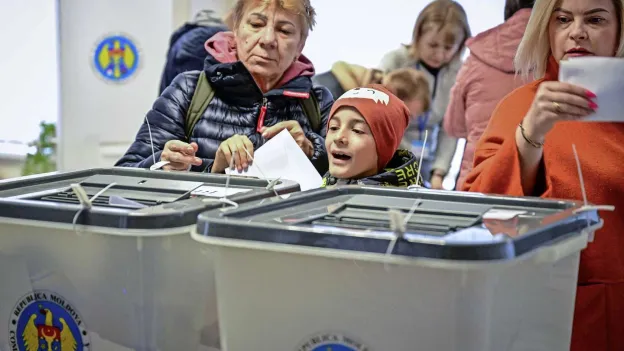Russia's Influence in Moldova: A History of Division and Disarray

10
World
October 21, 2024 15:50
chisinau - Russia has long been trying to pull Moldova into its sphere of influence, leading to political divisions and tensions in the Eastern European country. Learn more about the situation in Moldova.
Shortly after the fall of the USSR on August 27, 1991, Moldova declared independence, like all other former Soviet republics. However, residents living north of the Dniester river refused to join and instead proclaimed their own country, Transnistria, leading to a brief civil war. Despite Russia's support, the world has never recognized Transnistria as a separate state. Today, Moldova remains divided both geographically and ethnically, with pro-Russian and pro-European factions showing no signs of reconciliation.
Currently, Moldova is led by pro-European President Maia Sandu, who won 41% of the vote in the recent election but will face a runoff in November. Sandu has accused Russia of meddling in the election, claiming that criminals bought 300,000 votes with Russian support. These allegations are not unfounded, as Moldovan authorities uncovered a scheme involving millions of euros in illegal political funding linked to the Kremlin.
Russia's interference in Moldova is not a new phenomenon, with reports of Russian-funded anti-government protests and disinformation campaigns. International bodies like the European Commission, the US, and the UK have condemned Russia's aggressive actions in Moldova. Russian documents leaked last year revealed Kremlin's long-standing efforts to increase its influence in Moldova's political and economic elites, despite President Sandu's pro-European stance.
Similar to Georgia, Moldova's pro-Russian shift has raised concerns about Russia's expanding influence in the region. Experts warn that Russia views Moldova as a crucial dominostone in its efforts to roll back Western influence in Eastern Europe. In response, the EU has pledged substantial economic assistance to support Moldova's pro-European trajectory and counter Russian interference.